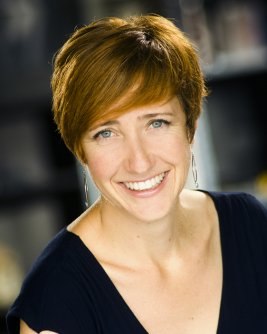
Scientist Mark Serreze used to have doubts about climate change. Then he went on a series of research trips to the Arctic. Today, Serreze directs the National Snow and Ice Data Center in Boulder. He writes about his journeys to the Arctic Circle and how he came to accept human-caused Global Warming, "Brave New Arctic: The Untold Story of the Melting North."
Serreze spoke to Colorado Matters about how the Northern ice he's seen steadily melt since his early trips in the 1980s will impact all of us. And with the receding sea ice and rising temperatures, more and more people will go to the Arctic for tourism or for oil and gas business.
Excerpt From Chapter 1 Of "Brave New Arctic"
Beginnings Turning points in life are seldom recognized until they have already passed. In my case, that turning point was in 1981. After a series of aimless years, I finally landed on a track toward a bachelor’s degree from the University of Massachusetts Amherst in physical geography. I’d started out in 1978 as an astronomy and physics major, but for a number of reasons, none of which bear especially close scrutiny, I decided to go in a different direction. On the plus side, it was clear that a bachelor’s in geography was better than no degree at all. On the minus side, I hadn’t yet learned enough hard science to be employable, only enough to be irritating to my friends. Lucky for me, the decision panned out. I ended up being in the right place at the right time to seize an opportunity and see part of the world where, at the time, few had ventured. Six months later, I found myself in a ski-equipped Twin Otter headed to northeastern Ellesmere Island in the Canadian High Arctic to begin a detailed study of two little ice caps. I became enchanted with the North and decided to become an Arctic climatologist. By 2016, those ice caps had almost completely melted away, victims of the Arctic meltdown. I could never have imagined this at the time. I could not have known that in becoming a climate scientist, I was to earn a front-row seat to observe how, in fits and starts, it first began to be noticed that the Arctic was changing. Nor could I have known that I’d also become part of the growing cadre of scientists who first struggled with conflicting evidence to try and make sense of what was happening, then finally had no recourse but to yield to the conclusion that a radical transformation was underway. I could not have foreseen that Arctic climate research, once the domain of a small community of scientists with love for snow and ice, would become a centerpiece in the quest to understand the impacts of global climate change that would involve collaboration between thousands of scientists from around the world. From BRAVE NEW ARCTIC: The Untold Story of the Melting North by Mark C. Serreze. Copyright © 2018 by Princeton University Press. Reprinted by permission. |









